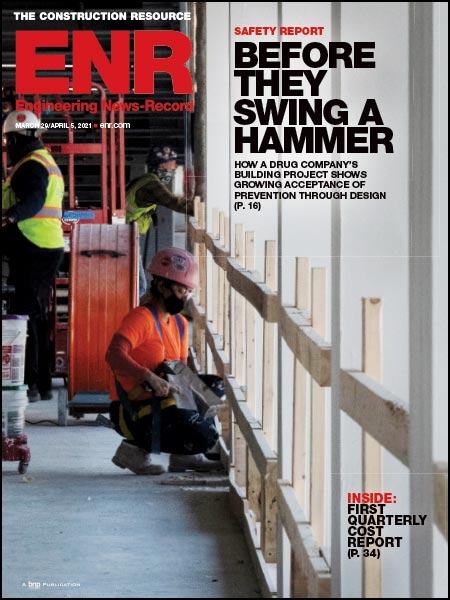Massachusetts industry executives were awaiting word at ENR press time on whether a state House and Senate conference committee could hash out differences over their respective versions of a five-year, $13-billion transportation bond bill. Both versions of the bill are similar, and Gov. Deval Patrick (D) has indicated his support. As a result, many expect it to pass and authorize capital spending on a host of long-awaited projects to improve heavily used roads, rails and other infrastructure.
Anthony Puntin, executive director of the Boston Society of Civil Engineers, is optimistic about the bill's passage, but he also cautions that anything can happen. "Everybody assumes that it will be agreed on. But we don't know," he observes.
Planned items covered in both bills include the South Coast Rail project, extending regional service from the Boston area to the state's southeastern coast; the Green Line extension, which would add new stations and 4.3 miles to the Greater Boston light-rail service; and South Station improvements, including expansion and upgrades of Boston's 115-year-old commuter and Amtrak rail hub. Both bills include funding for road and highway projects statewide.
The Patrick administration, which is in its last year, would decide which projects get funding from the bond proceeds. Since the bond would cover the next five years, the next administration will make decisions on priorities, too.
However, "in Massachusetts, the bond bill creates sort of a spending list that is greater than the funding [available] to support it … and so some of the things in it don't end up getting funded," says Kristina Egan, director of the non-profit Transportation for Massachusetts. But she says, "I think the administration will move many projects forward," including the major rail projects, road and highway improvement measures, and Massachusetts Bay Transportation Authority system upgrades.
Last July, the state Legislature approved an $800-million transportation finance bill that hiked the gas tax by 3¢, to 24¢, and added a $1 per-pack charge to cigarettes.











